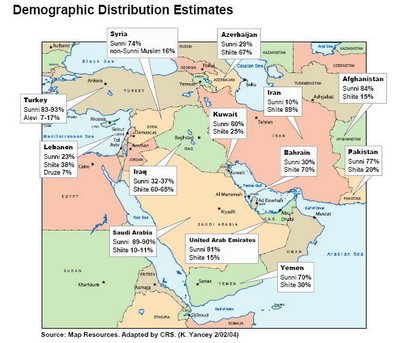Al Gore at the Academy Awards
Labels: climate change
"Copia" is Latin for "abundance," and this blog explores my belief that abundance is all around us. We live in a world of infinite possibilities,
and we have the ability to choose our own paths.
I write about a wide range of topics, and common themes are politics, civil liberties, health, the environment, and science.
Who am I? I'm Torq Anvil...
Labels: climate change
I'VE BEEN READING The Spirituality of Imperfection, a fantastic book that explores the profound truth in the statement, "I am not perfect." It bridges the wisdom of ancient traditions with insights from modern movements like Alcoholics Anonymous, interweaving stories from Hebrew prophets, Buddhist sages, Christian teachers, and ancient Greeks.Another obvious suspect, then, is American consumerism. No other country in the world spends as much on consumer goods. As Morgan Stanley notes, in just one telling index, "Over the 1996 to 2004 period, annual growth in US personal consumption expenditures averaged 3.9% — nearly double the 2.2% pace recorded elsewhere in the so-called advanced world." The real prices of many consumer goods are as much as 50 percent less than they were a century ago. It's never been so easy for so many to amass so many consumer products. And who doesn't take pleasure from owning things? But living in a land of wants, not needs, creates its own dilemmas, as evidenced by the concurrent rise of stores like Hold Everything and the Container Store—stuff to hold stuff. Note the curious growth in the "home organization" market: reality shows like Clean Sweep and magazines like Real Simple, or, more strikingly, the robustness of the National Association of Professional Organizers, which saw a 50 percent rise in membership in the past year.
But as consumption has grown, so too has the average size of the American house. The National Association of Homebuilders reports that the average American house went from 1,660 square feet in 1973 to 2,400 square feet in 2004. So, let's get this straight—houses got bigger, average family sizes got smaller, and yet we still need to tack on a billion-plus square feet to store our stuff?
And there's something more: invariably we become attached to objects. And to them we attach memories. We attach remembered conversations or interactions; we attach emotions from events in the past. Again, there's nothing inherently wrong with that. But when we surround ourselves with objects that are so strongly tied to the past, we're constantly called back to another time and away from the present. We lose our ability to just exist in the present moment.Socrates believed that the wise person would instinctively lead a frugal life, and he even went so far as to refuse to wear shoes. Yet he constantly fell under the spell of the marketplace and would go the there often to look at the great variety and magnificence of the wares on display.
A friend once asked him why he was so intrigued with the allures of the market. "I love to go there," Socrates replied, "to discover how many things I am perfectly happy without."
Material possessions are not "bad" in and of themselves, but as Socrates knew, the material realities that we possess tend also to possess us. The more we have, the more we want; and the more we want, the more we are possessed by our possessions.
(For more on the fact that we're not getting happier despite being wealthier, check out "The Progress Paradox" here and here.)The journal Science reported last week yet more evidence and another theory about why wealth does not make people happy: "The belief that high income is associated with good mood is widespread but mostly illusory," one of its studies concluded. "People with above-average income ... are barely happier than others in moment-to-moment experience, tend to be more tense, and do not spend more time in particularly enjoyable activities."
Wait, there's more. "The effect of income on life satisfaction seems to be transient," the researchers added. "We argue that people exaggerate the contribution of income to happiness because they focus, in part, on conventional achievements when evaluating their lives and the lives of others."
Wow. Let's pause a moment to let all priests, nuns and anarchists take a bow and say, "I told you so!"
"People grossly exaggerate the impact that higher incomes would have on their subjective well-being," said Alan Krueger, a professor of economics and public affairs at Princeton University and an author of the study.
The problem is that once people get past the level of poverty, money does not play a significant role in day-to-day happiness, Krueger said. It certainly can buy things, but things do not usually address most of the troubles people experience in daily life -- concerns about their children, problems in intimate relationships and stressful aspects of their jobs.
Imagine you have a choice between earning $50,000 a year while other people make $25,000 or earning $100,000 a year while other people get $250,000. Prices of goods and services are the same. Which would you prefer? Surprisingly, studies show that the majority of people select the first option. As H. L. Mencken is said to have quipped, "A wealthy man is one who earns $100 a year more than his wife's sister's husband."So it seems we care an awful lot about what others think. :-) I remember the day I sold my loft and drove with my last load of stuff across the river and toward my new and less extravagant home. For an awful moment, I thought, "You're crazy! What are you doing? You lived in one of the best buildings in the most desirable neighborhood in town. Everyone wants to live there!" And then, I realized, that I was simply creating suffering for myself. Perhaps the step I was taking that day was the first step in my doing what I wanted with my life rather than what I thought other people wanted.
Spirituality points, always, beyond: beyond the ordinary, beyond possession, beyond the narrow confines of the self, and--above all--beyond expectation. Because "the spiritual" is beyond our control, it is never exactly what we expect....
We can't hold it in our hands and touch it, manipulate it, or destroy it. Because it is beyond control, it is also beyond possession: We can't own it, lock it up, divide it among ourselves, or take it away from others.
Labels: being human

 Will we ever learn? I read an article in today's New York Times about an unexplained mass disappearance of honey bees in 24 states.
Will we ever learn? I read an article in today's New York Times about an unexplained mass disappearance of honey bees in 24 states.Labels: bees
QUOTE FOR THE DAY
Actual happiness looks pretty squalid in comparison with the overcompensations for misery. And, of course, stability isn’t nearly so spectacular as instability. And being contented has none of the glamour of a good fight against misfortune, none of the picturesqueness of a struggle with temptation, or a fatal overthrow by passion or doubt. Happiness is never grand.
-- Aldous Huxley
Labels: climate change, energy, peak oil
-- John F. Kennedy
Labels: quotes
Labels: LGBT
So get informed about Iran and our options there. Voice an opinion. And listen to others.The ideologues' strategy of confrontation failed because it strengthened the determination of North Korea (and Iran) to acquire nuclear weapons in order to deter military action by the United States without offering countervailing incentives and disincentives.
The credibility of a U.S. threat to overthrow offending regimes, however, dissipated as the insurgency in Iraq began to metastasize. And while the United States can squeeze regimes, it cannot suffocate them without the help of partners, such as China. China, however, rejects the regime change strategy and opposes measures that could end the Kim dynasty in North Korea.
In contrast, pragmatists in the Bush administration view negotiation more practically. As former Secretary of State Colin Powell put it, "You can't negotiate when you tell the other side, 'Give us what a negotiation would produce before the negotiations start'." This means offering a country both incentives and disincentives for renouncing nuclear arms.
He is right. Countries must be backed into a corner, but they must also be offered an attractive way out. That's what happened with Libya, the Bush administration's lone success at convincing a country to renounce nuclear weapons. Years of sanctions and isolation had backed the Gaddafi regime into a corner, and the United States and its allies offered it an attractive way out -- a grand bargain whereby Libya verifiably renounces nuclear weapons and terrorism in exchange for normalized relations with the United States and Europe.
Labels: Iran
There have been times in the last five and a half years when this mindset of sacrificing our principles for the sake of survival has taken hold again here at home. I'm beginning to hope that those days are behind us, but it's always good to remember: How easily it can happen.Janning's record and his fate illuminate the most shattering truth that has emerged from this trial. If he, and all of the other defendants, had been degraded perverts, if all of the leaders of the Third Reich had been sadistic monsters, and maniacs, then these events would have no more moral significance than an earthquake, or any other natural catastrophe.
But this trial has shown that under a national crisis, ordinary, even able and extraordinary men, can delude themselves into the commission of crimes so vast and heinous that they beggar the imagination. No one who has sat through the trial can ever forget them. Men sterilized because of political belief, a mockery made of friendship and faith, the murder of children. How easily it can happen.
There are those in our own country too, who today speak of the protection of country, of survival. A decision must be made. In the life of every nation, at the very moment when the grasp of the enemy is at his throat, then it seems that the only way to survive is to use the means of the enemy, to rest survival upon what is expedient, to look the other way. Well, the answer to that is survival as what? A country isn't a rock. It's not an extension of one's self. It's what it stands for. It's what it stands for when standing for something is the most difficult. Before the people of the world, let it now be noted, that here in our decision, this is what we stand for: justice, truth, and the value of a single human being.
Labels: LGBT

I am only one; but still I am one.
I cannot do everything, but still I can do something;
I will not refuse to do something I can do.-- Helen Keller
Labels: quotes
Contrary to the popular American myth that people left to fend for themselves become strong and independent, the psychological research seems to show exactly the opposite is true: It is the people who are confident enough to reach out to others for help -- and to whom help is given -- who become truly capable of independence.The article reports on a 25 year study which tracked 78 one-year olds into early adulthood. The researchers at the University of Minnesota found that "the kind of baby you were at 12 months can say a lot about the kind of lover you will be at 21."
Labels: movies

Labels: LGBT

Labels: LGBT
Labels: climate change, environment


Labels: environment